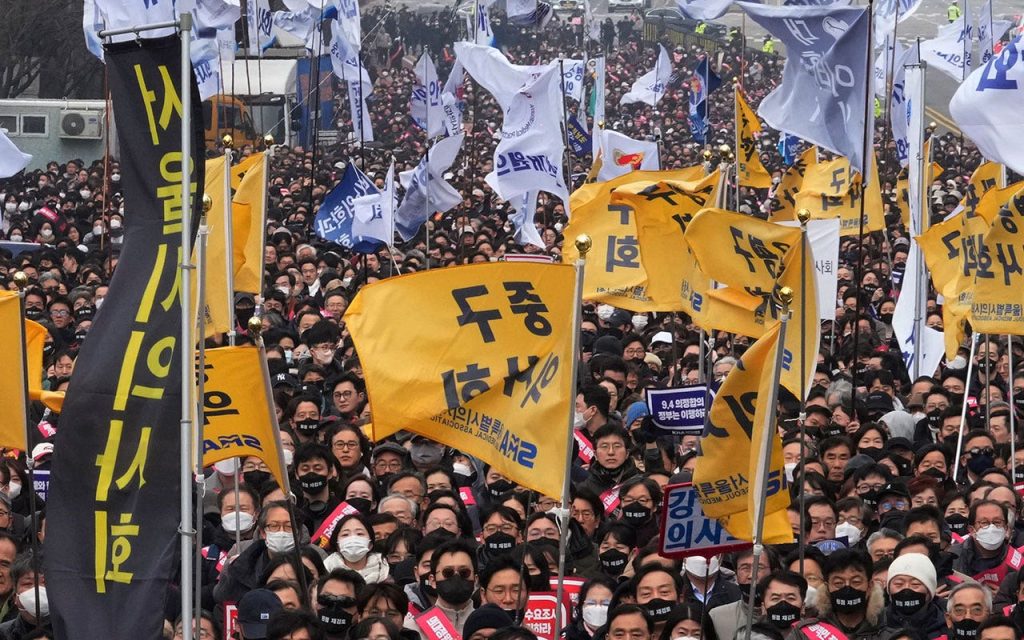South Korean police conducted a search of the office of Lim Hyun-taek, the incoming leader of the Korean Medical Association, along with his residence, confiscating his mobile phone and other materials. This action was in response to accusations that Lim incited the walkouts by medical interns and residents. Lim’s office criticized the raid as politically motivated. He is one of five former or incumbent Korean Medical Association officials under police investigation for allegedly inciting the strikes. In mid-April, two officials had their medical licenses suspended. The government has faced pressure to find a compromise to end the strikes, which have caused delays and cancellations of medical treatments.
More than 10,000 interns and residents at major university hospitals walked off the job in February to protest the government’s plan to increase the medical school enrollment quota by 2,000 starting next year. Lim said doctors want the government to completely scrap the plan and urged the firing of officials involved in its formulation. The government has offered to adjust the plan by allowing universities to determine whether to lower planned admissions by up to 50% next year, potentially resulting in as few as 1,000 new medical students. Officials say the plan aims to address the country’s aging population and low doctor-to-population ratio. However, doctors argue that schools are not prepared for an abrupt increase in students and it could lead to unnecessary treatments and lower incomes for doctors in the future.
The search of Lim’s office and residence was seen as a clear retaliation and political suppression by his office. South Korean police said the raid was conducted to confiscate Lim’s mobile phone and other materials, illustrating the ongoing tensions between the government and striking doctors. Deepening worries about the situation have led senior doctors at hospitals where the striking junior doctors worked to threaten resignation in support of the strikes. The government urged senior doctors not to leave their patients, though it has not found any hospitals planning to accept their resignation offers. The strikes have caused disruptions in medical services, leading to public calls for a compromise between the government and doctors.
The government’s plan to admit more medical school students has been met with strong opposition from doctors concerned about the impact on medical services and their incomes. The strikes by interns and residents have caused delays and cancellations in medical treatments, prompting police investigations into officials accused of inciting the strikes. The government has offered to adjust the plan by allowing universities to lower admissions by up to 50% next year. However, doctors are demanding the complete scrapping of the plan and the dismissal of officials involved in its formulation. There are concerns that the strikes could lead to a further deterioration of medical services in South Korea, as senior doctors threaten resignation in support of the strikes.
The ongoing tensions between the government and striking doctors have not yet resulted in a resolution to the strikes. Lim Hyun-taek, the incoming leader of the Korean Medical Association, was the target of a police raid on his office and residence as part of investigations into his role in inciting the strikes. The government has faced pressure to find a compromise to end the strikes, which have caused disruptions in medical services and led to public calls for a resolution. Senior doctors have threatened resignation in support of the strikes, further deepening worries about the impasse. The government has made offers to adjust the enrollment plan for medical schools, but doctors are demanding its complete scrapping, highlighting the deep divide between the two sides.













